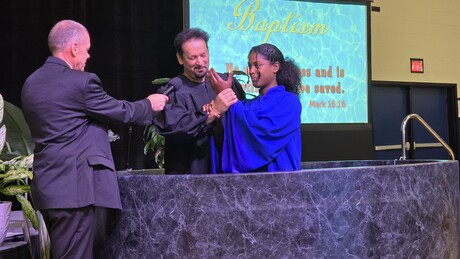Parables make up a large portion of Jesus' words captured in the Gospels. Jesus gave some of His most memorable lessons through parables. Stories like "The Good Samaritan" and "The Prodigal Son" continue to transcend time and generations.
The parable of the sower in Matt. 13:1–9 in particular calls my attention because it challenges the heart of the sower, not so much the condition of the ground.
According to the parable, there are different types of terrain where the seed falls: next to the road, on the stones, in the thorns and on the good ground. A quick reading of this parable can lead us to the conclusion that the work of the sower begins and ends with the exposition of the Word, and that the various types of soil are responsible for the acceptance or rejection of the gospel message.
However, this would be an erroneous conclusion.
“In the ministry of the Word there is too much sermonizing, and too little of real heart-to-heart work. There is need of personal labor for the souls of the lost. In Christlike sympathy, we should come close to men individually and seek to awaken their interest in the great things of eternal life. Their hearts may be as hard as the beaten highway, and apparently it may be a useless effort to present the Savior to them; but while logic may fail to move, and argument be powerless to convince, the love of Christ, revealed in personal ministry, may soften the stony heart, so that the seed of truth can take root.”1
The sowers have tangible work to do so the seed won’t be choked by thorns or die due to the shallow depth of the soil. The truth is, we need to get personally involved in the sowing process. Evangelistic programming on the radio, television and social media are all excellent. However, unless sowers personally engage in manifestations of Christ’s love, I fear that the results of our sowing efforts will remain small.
The work of the sower, despite the diverse conditions of soil, is to personally impact individuals with the love of Christ, which softens the heart and transforms it into fertile ground.
“The good seed may for a time lie unnoticed in a cold, selfish, worldly heart, giving no evidence that it has taken root, but afterward, as the Spirit of God breathes on the soul, the hidden seed springs up and at last bears fruit to the glory of God. In our lifework, we know not which shall prosper, this or that. This is not a question for us to settle. We are to do our work and leave the results with God.”2
Sowing should not be centered on our personal perception of the soil, but on the power of the Spirit over a human heart which is awakened from its lethargy in response to the gospel. As we engage in this sacred, personal work, we are also recipients of supernatural blessings.
“There can be no growth or fruitfulness in the life that is centered in self. If you have accepted Christ as a personal Savior, you are to forget yourself, and try to help others. Talk of the love of Christ, tell of His goodness. Do every duty that presents itself. Carry the burden of souls upon your heart, and by every means in your power seek to save the lost. As you receive the Spirit of Christ — the Spirit of unselfish love and labor for others — you will grow and bring forth fruit. The graces of the Spirit will ripen in your character. Your faith will increase, your convictions deepen, your love be made perfect. More and more you will reflect the likeness of Christ in all that is pure, noble and lovely."3
Everyone wins in this divine plan! Both sowers and soil are nourished and matured by Christ’s amazing, transformative love!
1. Ellen G. White, Christ's Object Lessons, 57.1
2. Ellen G. White, Christ's Object Lessons, 65.1
3. Ellen G. White, Christ's Object Lessons, 67.3







